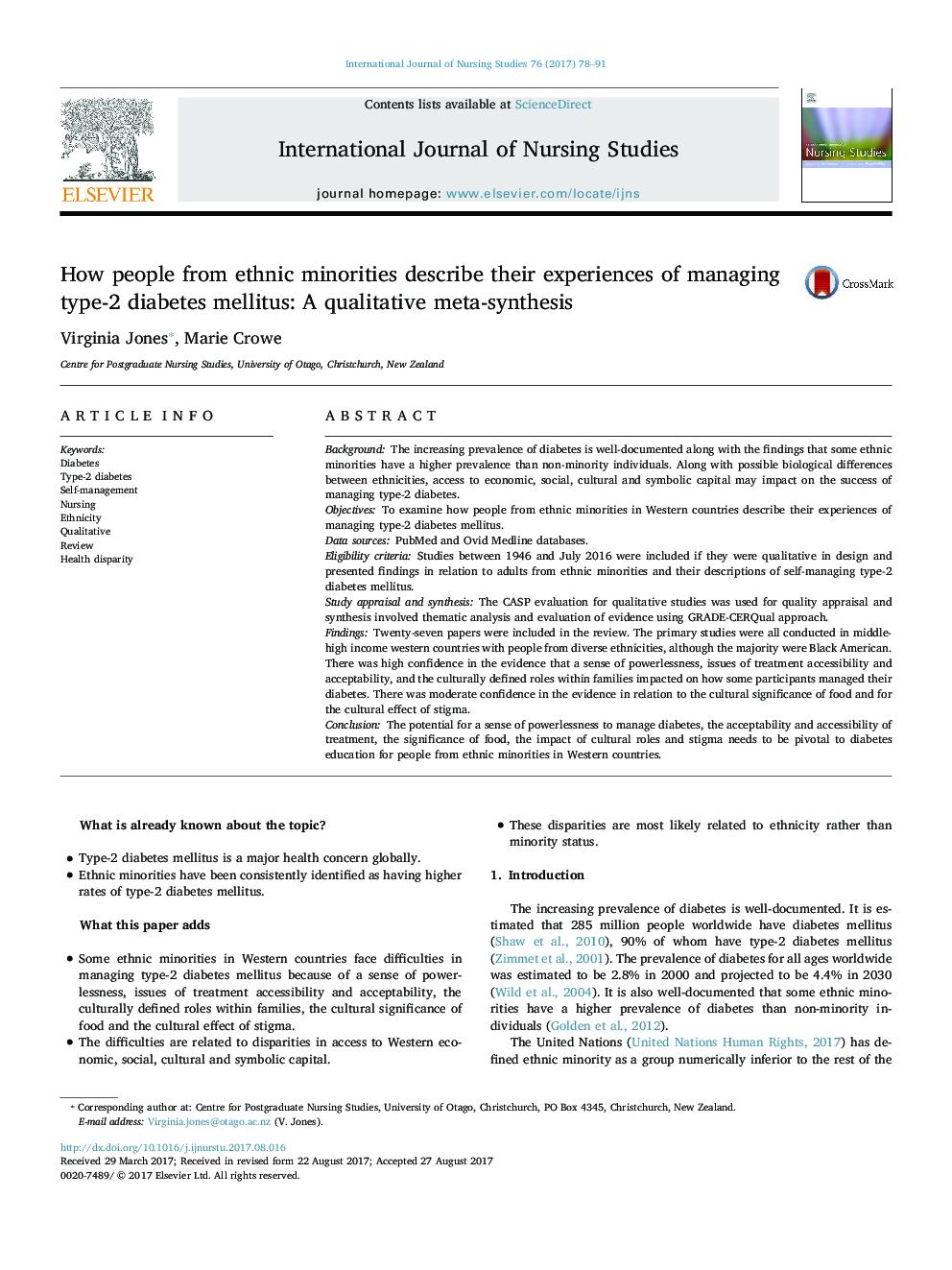| Article ID | Journal | Published Year | Pages | File Type |
|---|---|---|---|---|
| 5120955 | International Journal of Nursing Studies | 2017 | 14 Pages |
BackgroundThe increasing prevalence of diabetes is well-documented along with the findings that some ethnic minorities have a higher prevalence than non-minority individuals. Along with possible biological differences between ethnicities, access to economic, social, cultural and symbolic capital may impact on the success of managing type-2 diabetes.ObjectivesTo examine how people from ethnic minorities in Western countries describe their experiences of managing type-2 diabetes mellitus.Data sourcesPubMed and Ovid Medline databases.Eligibility criteriaStudies between 1946 and July 2016 were included if they were qualitative in design and presented findings in relation to adults from ethnic minorities and their descriptions of self-managing type-2 diabetes mellitus.Study appraisal and synthesisThe CASP evaluation for qualitative studies was used for quality appraisal and synthesis involved thematic analysis and evaluation of evidence using GRADE-CERQual approach.FindingsTwenty-seven papers were included in the review. The primary studies were all conducted in middle-high income western countries with people from diverse ethnicities, although the majority were Black American. There was high confidence in the evidence that a sense of powerlessness, issues of treatment accessibility and acceptability, and the culturally defined roles within families impacted on how some participants managed their diabetes. There was moderate confidence in the evidence in relation to the cultural significance of food and for the cultural effect of stigma.ConclusionThe potential for a sense of powerlessness to manage diabetes, the acceptability and accessibility of treatment, the significance of food, the impact of cultural roles and stigma needs to be pivotal to diabetes education for people from ethnic minorities in Western countries.
